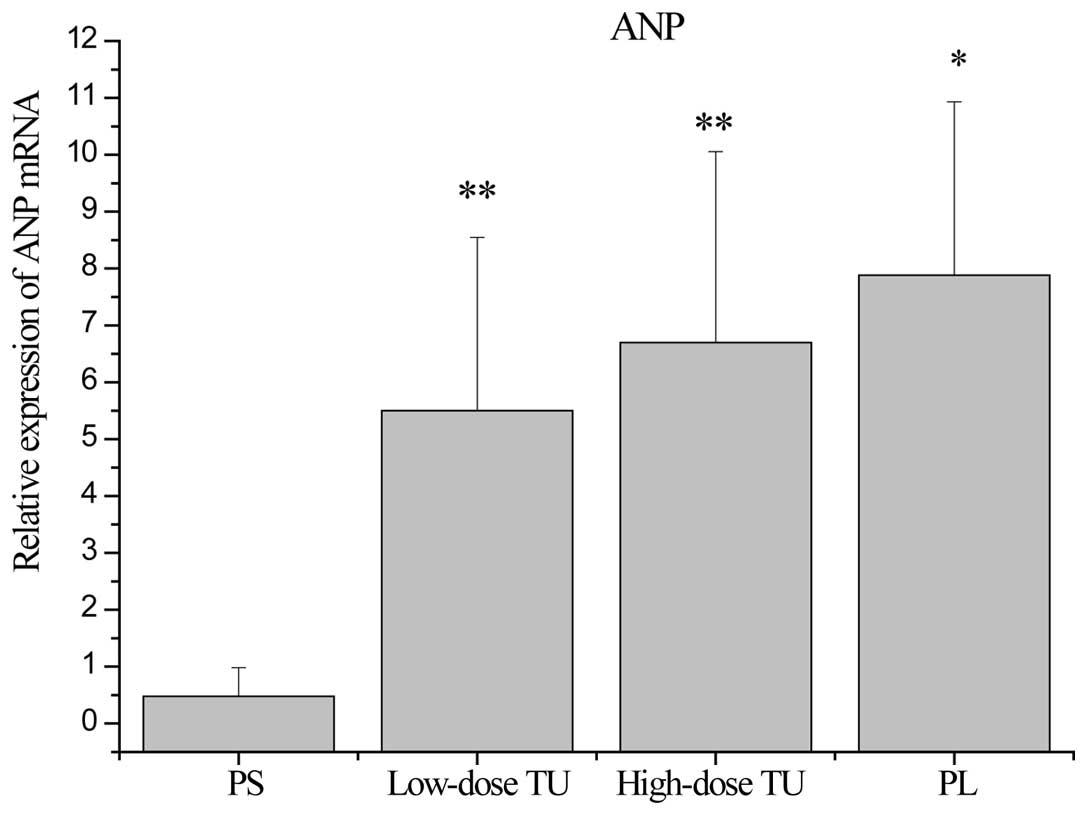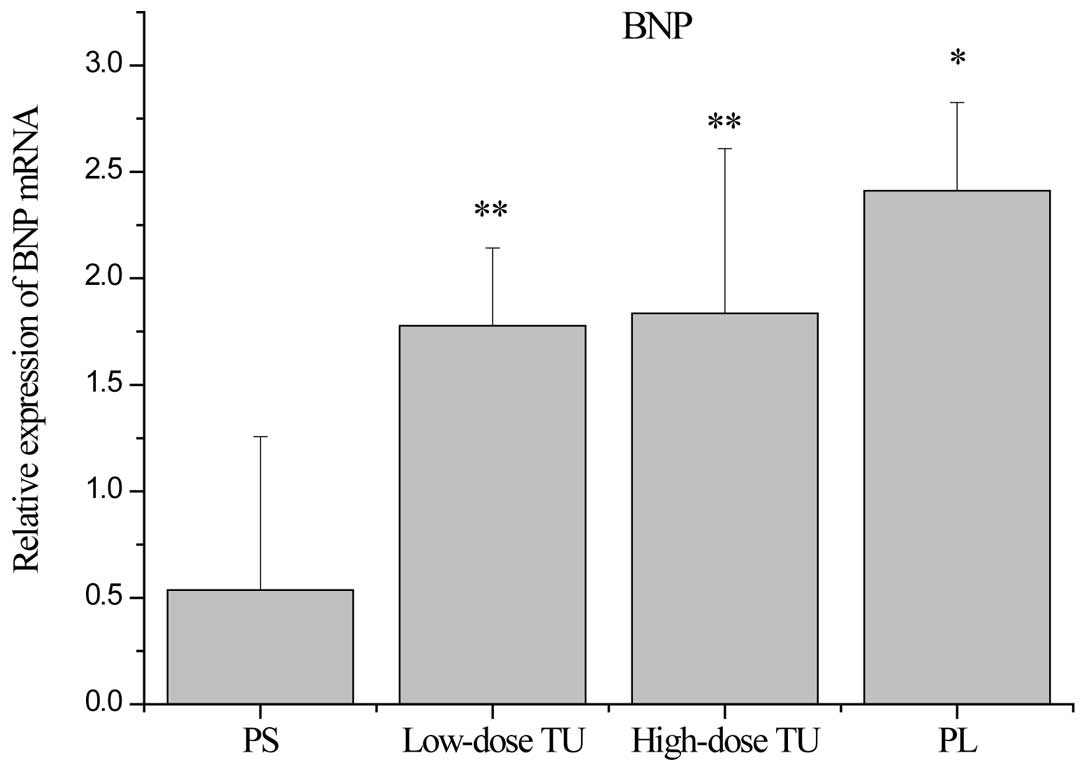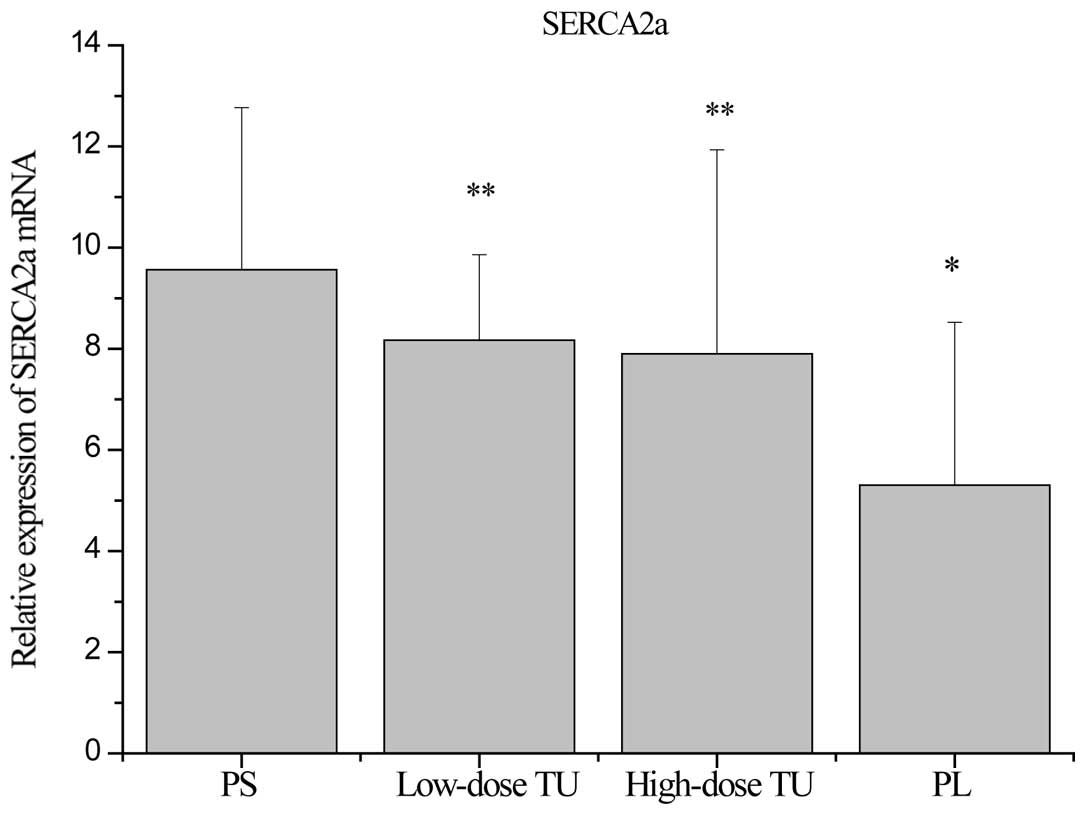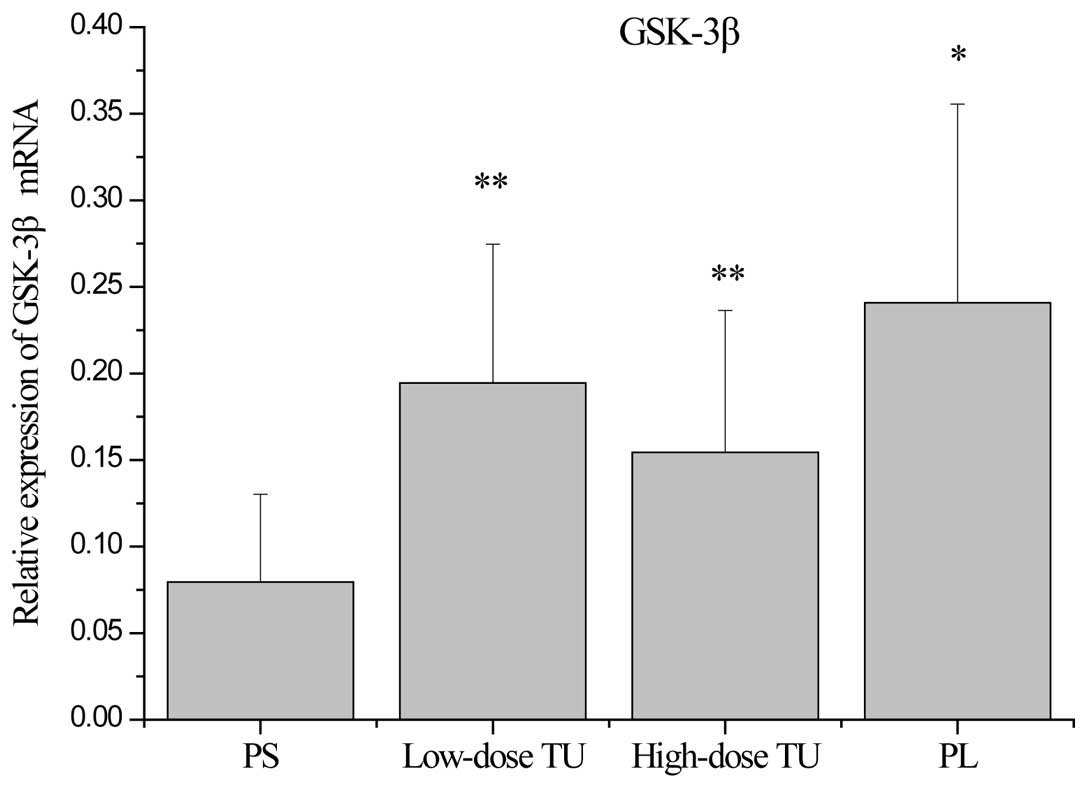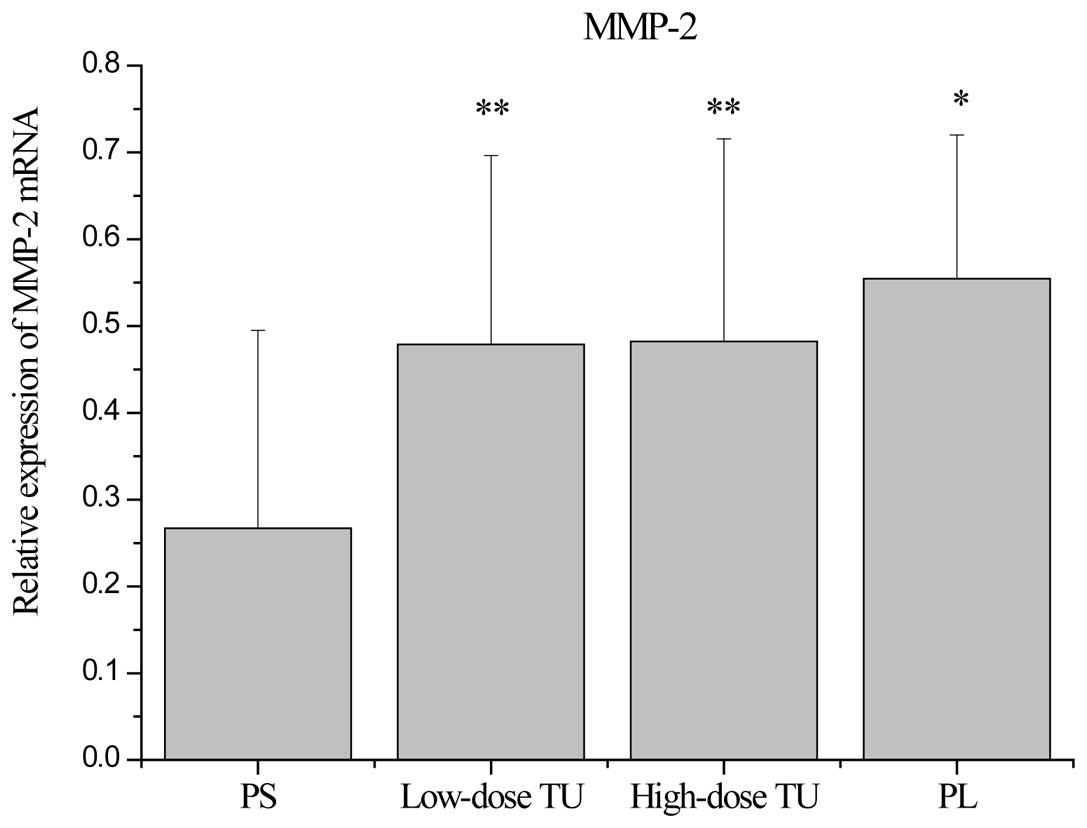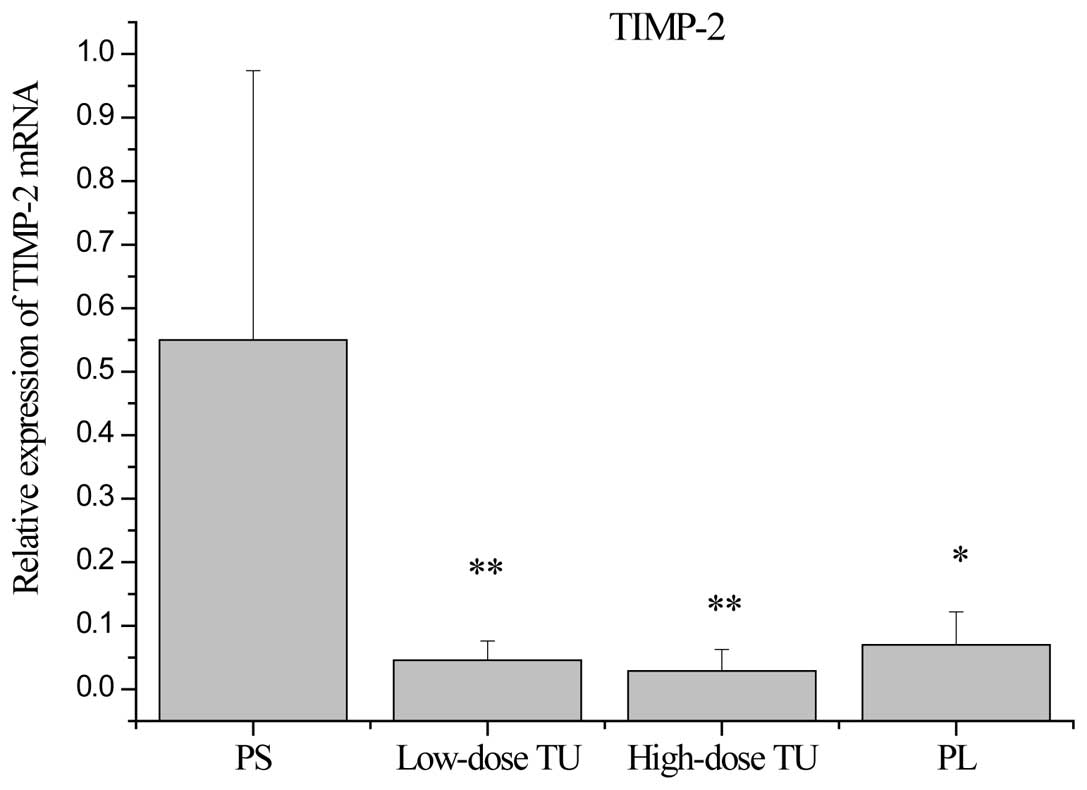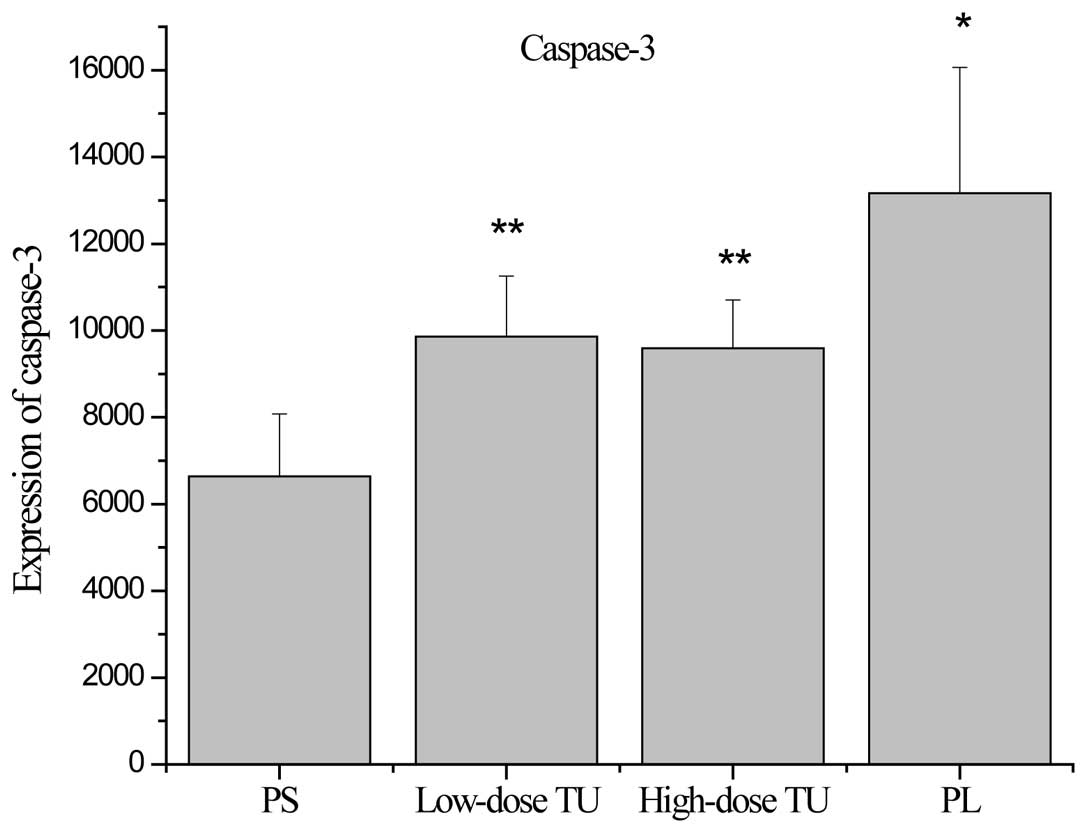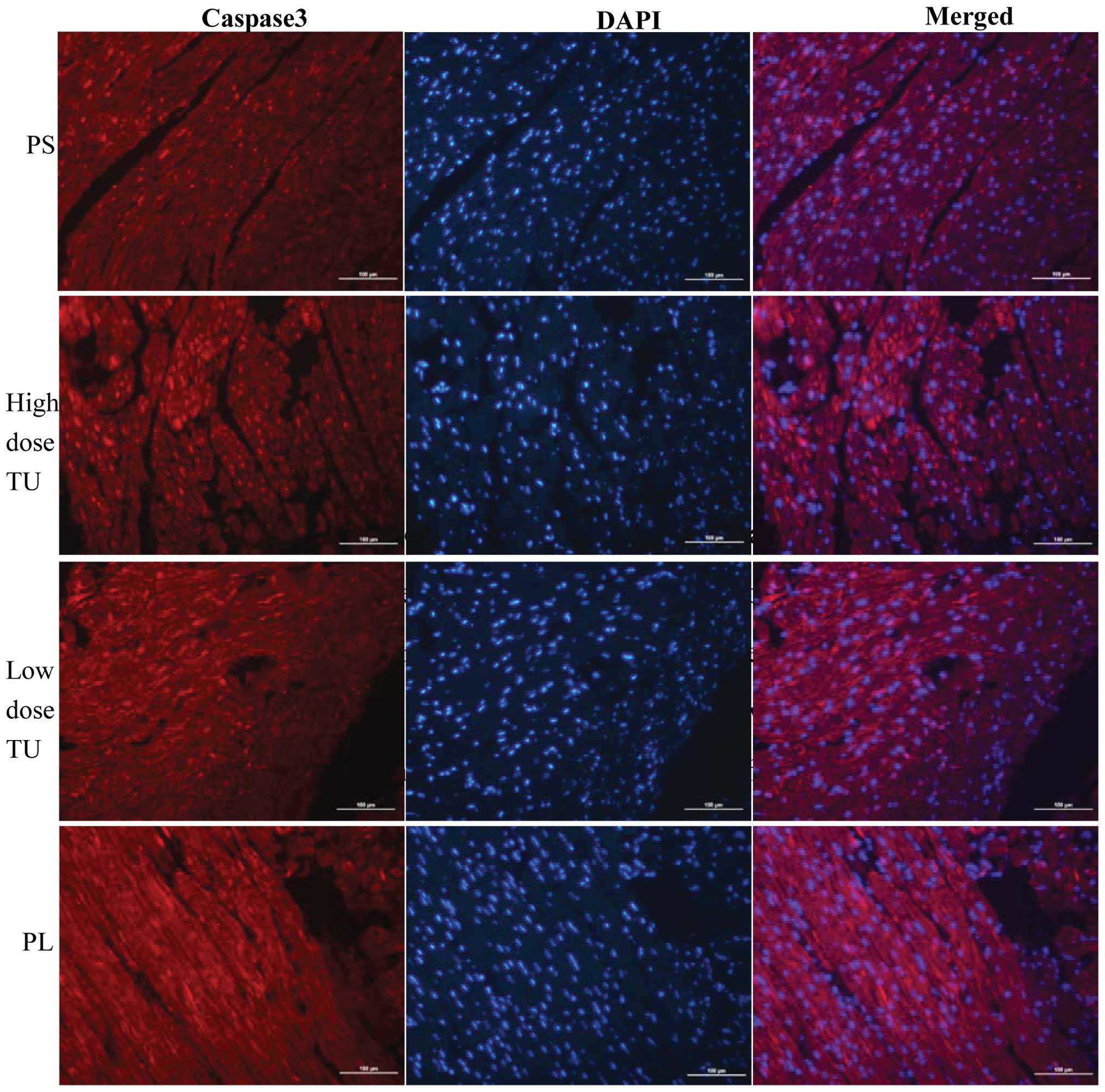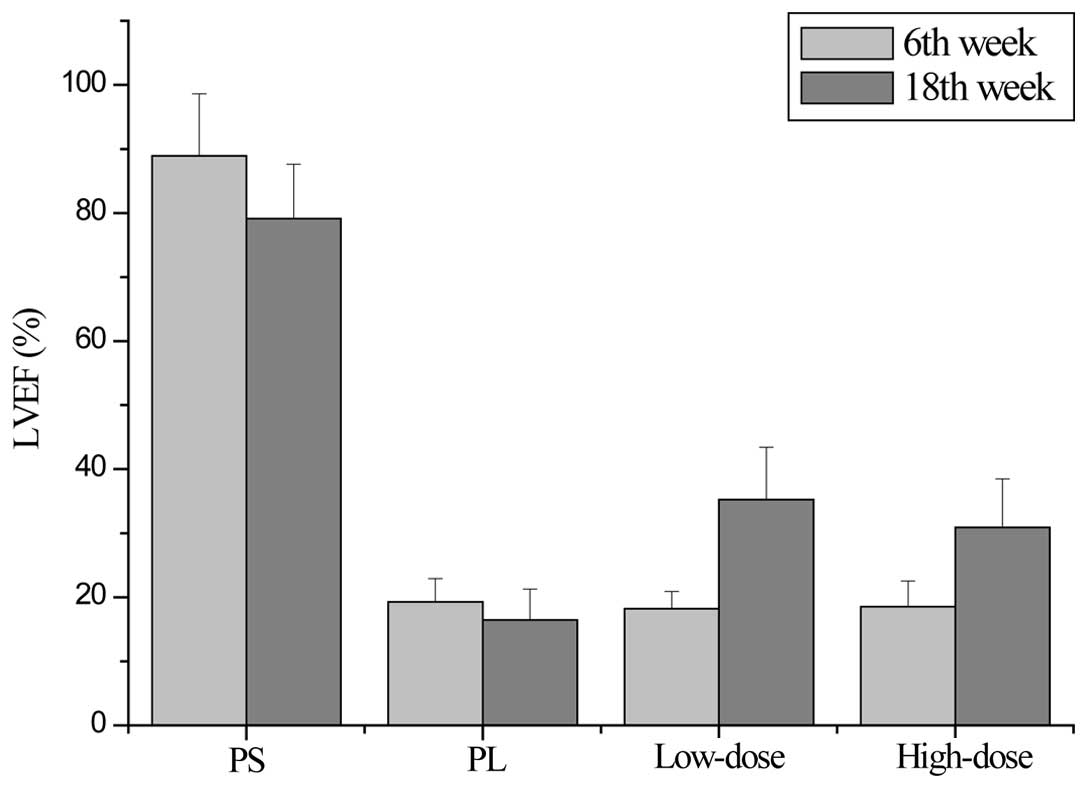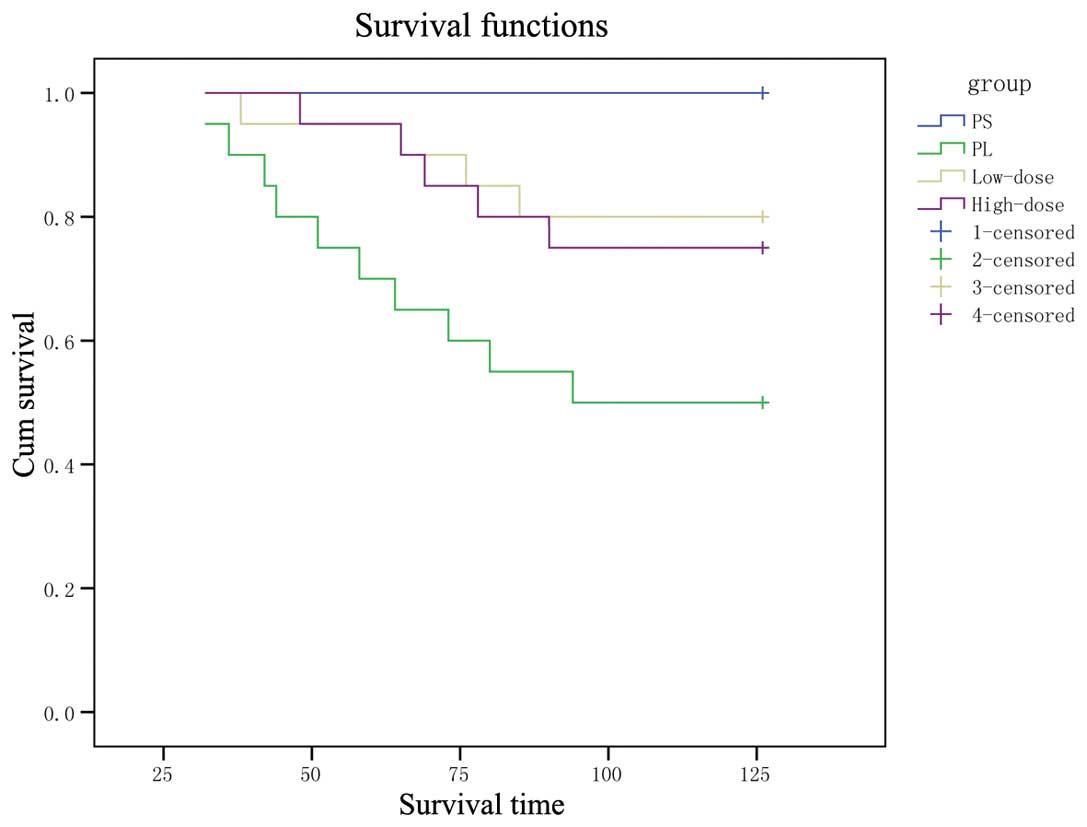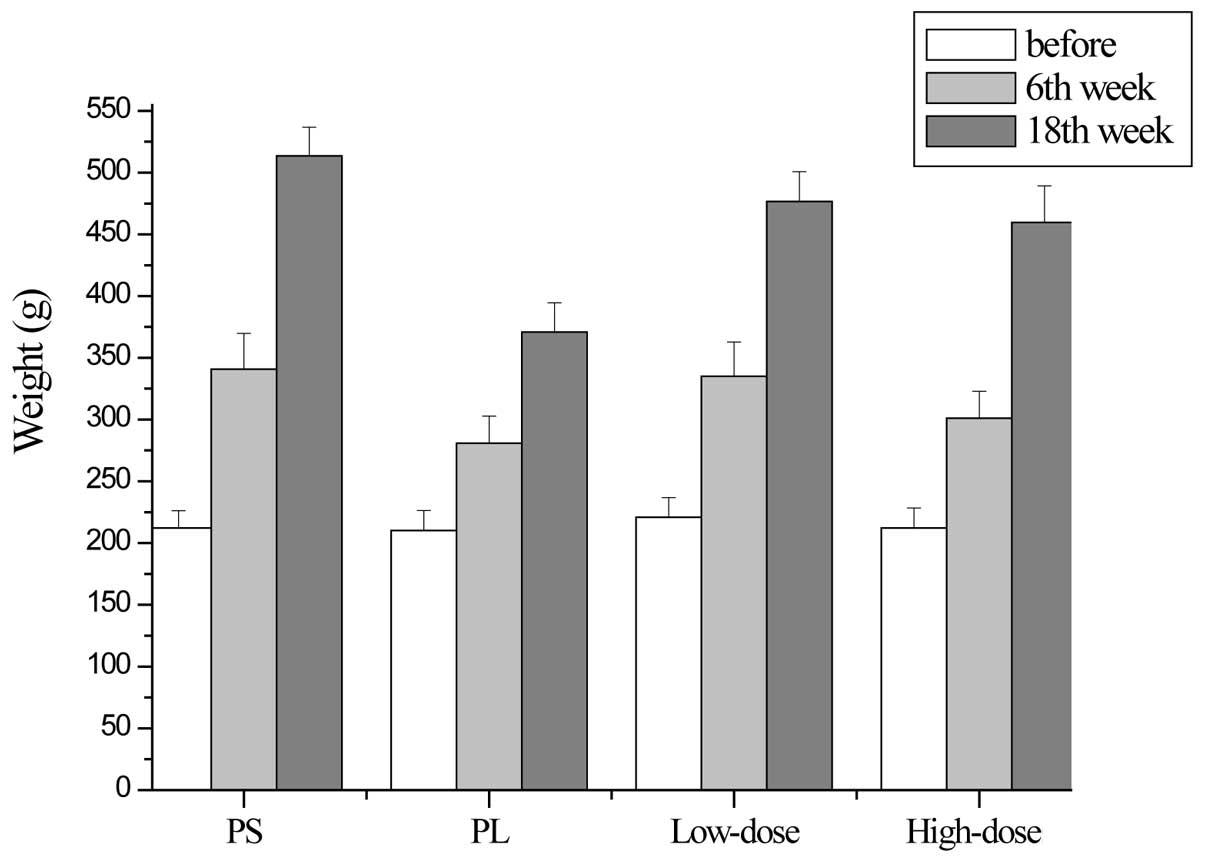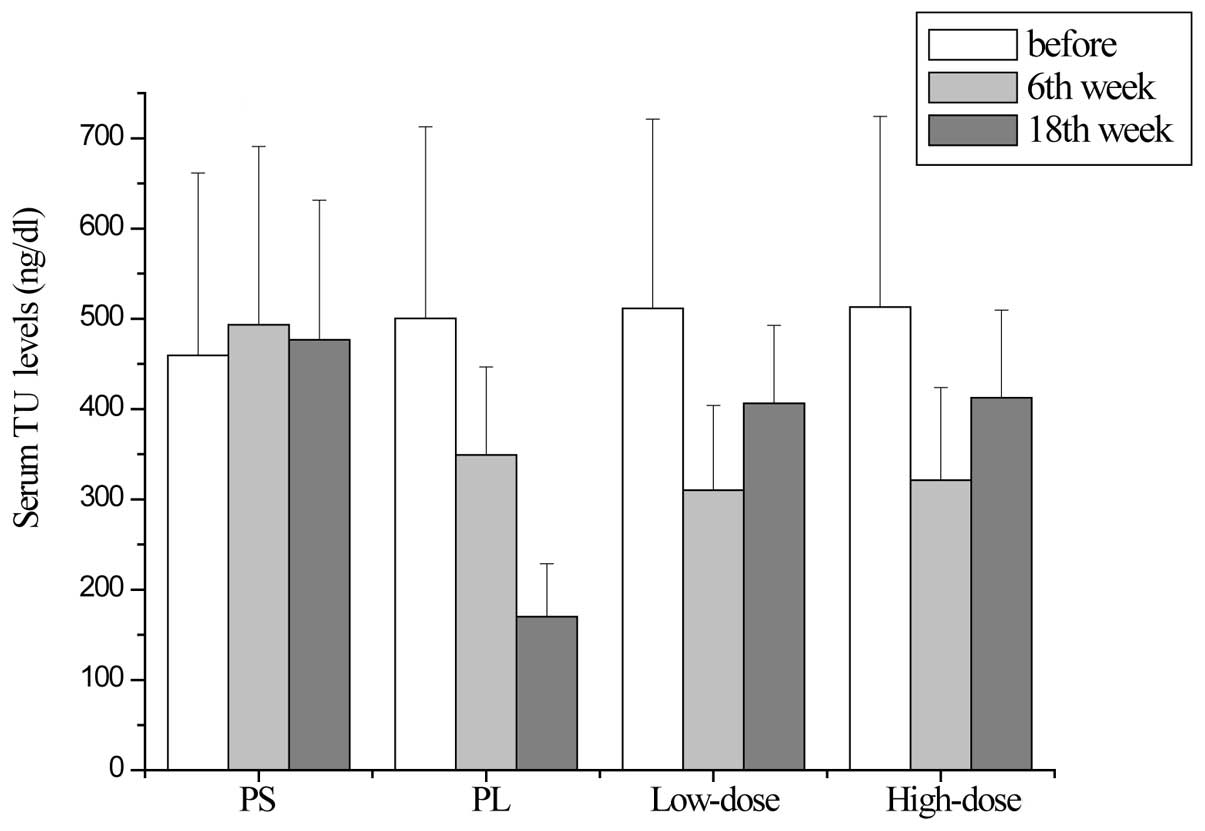|
1
|
Holland DJ, Kumbhani DJ, Ahmed SH and
Marwick TH: Effects of treatment on exercise tolerance, cardiac
function, and mortality in heart failure with preserved ejection
fraction. A meta-analysis. J Am Coll Cardiol. 57:1676–1686. 2011.
View Article : Google Scholar : PubMed/NCBI
|
|
2
|
Frank KF, Bölck B, Erdmann E and Schwinger
RH: Sarcoplasmic reticulum Ca2+-ATPase modulates cardiac
contraction and relaxation. Cardiovasc Res. 57:20–27. 2003.
View Article : Google Scholar
|
|
3
|
Chen Y, Escoubet B, Prunier F, Amour J,
Simonides WS, Vivien B, Lenoir C, Heimburger M, Choqueux C, Gellen
B, Riou B, Michel JB, Franz WM and Mercadier JJ: Constitutive
cardiac overexpression of sarcoplasmic/endoplasmic reticulum
Ca2+-ATPase delays myocardial failure after myocardial
infarction in rats at a cost of increased acute arrhythmias.
Circulation. 109:1898–1903. 2004. View Article : Google Scholar : PubMed/NCBI
|
|
4
|
Ducharme A, Frantz S, Aikawa M, Rabkin E,
Lindsey M, Rohde LE, Schoen FJ, Kelly RA, Werb Z, Libby P and Lee
RT: Targeted deletion of matrix metalloproteinase-9 attenuates left
ventricular enlargement and collagen accumulation after
experimental myocardial infarction. J Clin Invest. 106:55–62. 2000.
View Article : Google Scholar : PubMed/NCBI
|
|
5
|
Malkin CJ, Pugh PJ, Jones RD, Kapoor D,
Channer KS and Jones TH: The effect of testosterone replacement on
endogenous inflammatory cytokines and lipid profilesin hypogonadal
men. J Clin Endocrinol Metab. 89:3313–3318. 2004. View Article : Google Scholar : PubMed/NCBI
|
|
6
|
Pugh PJ, English KM, Jones TH and Channer
KS: Testosterone: a natural tonic for the failing heart? QJM.
93:689–694. 2000. View Article : Google Scholar : PubMed/NCBI
|
|
7
|
Malkin CJ, Pugh PJ, West JN, van Beek EJ,
Jones TH and Channer KS: Testosterone therapy in men with moderate
severity heart failure: a double-blind randomized placebo
controlled trial. Eur Heart J. 27:57–64. 2006. View Article : Google Scholar
|
|
8
|
Pugh PJ, Jones TH and Channer KS: Acute
haemodynamic effects of testosteronein men with chronic heart
failure. Eur Heart J. 24:909–915. 2003. View Article : Google Scholar : PubMed/NCBI
|
|
9
|
Pugh PJ, Jones RD, West JN, Jones TH and
Channer KS: Testosterone treatment for men with chronic heart
failure. Heart. 90:446–447. 2004. View Article : Google Scholar : PubMed/NCBI
|
|
10
|
Zhang YZ, Xing XW, He B and Wang LX:
Effects of testosterone on cytokines and left ventricular
remodeling following heart failure. Cell Physiol Biochem.
20:847–852. 2007. View Article : Google Scholar : PubMed/NCBI
|
|
11
|
Noirhomme P, Jacquet L, Underwood M, EI
Khoury G, Goenen M and Dion R: The effect of chronic mechanical
circulatory support on neuroendocrine activation in patients with
end-stage heart failure. Eur J Cadiothorac Surg. 16:63–67. 1999.
View Article : Google Scholar
|
|
12
|
Nahrendorf M, Frantz S, Hu K, von zur
Mühlen C, Tomaszewski M, Scheuermann H, Kaiser R, Jazbutyte V, Beer
S, Bauer W, Neubauer S, Ertl G, Allolio B and Callies F: Effect of
testosterone on post-myocardial infarction remodeling and function.
Cardiovasc Res. 57:370–378. 2003. View Article : Google Scholar : PubMed/NCBI
|
|
13
|
Jankowska EA, Biel B, Majda J, et al:
Anabolic deficiency in men with chronic heart failure: prevalence
and detrimental impact on survival. Circulation. 114:1829–1837.
2006. View Article : Google Scholar : PubMed/NCBI
|
|
14
|
Cleland JG, Khand A and Clark A: The heart
failure epidemic: exactly how big is it? Eur Heart J. 22:623–626.
2001. View Article : Google Scholar : PubMed/NCBI
|
|
15
|
Cavallero S, González GE, Puyó AM, Rosón
MI, Pérez S, Morales C, Hertig CM, Gelpi RJ and Fernández BE:
Atrial natriuretic peptide behaviour and myocyte hypertrophic
profile in combined pressure and volume-induced cardiac
hypertrophy. J Hypertens. 25:1940–1950. 2007. View Article : Google Scholar : PubMed/NCBI
|
|
16
|
Sanbe A, Gulick J, Han ks MC, Liang Q,
Osinska H and Robbins J: Reengineering inducible cardiac-specific
transgenesis with an attenuated myosin heavy chain promoter. Circ
Res. 92:609–616. 2003. View Article : Google Scholar : PubMed/NCBI
|
|
17
|
Rubio M, Bodi I, Fuller-Bicer GA, Hahn HS,
Periasamy M and Schwartz A: Sarcoplasmic reticulum adenosine
triphosphatase overexpression in the L-type Ca2+ channel
mouse results in cardiomyopathy and Ca2+-induced
arrhythmogenesis. J Cardiovasc Pharmacol Ther. 10:235–249. 2005.
View Article : Google Scholar : PubMed/NCBI
|
|
18
|
Pelzer T, Schumann M, Neumann M, deJager
T, Stimpel M, Serfling E and Neyses L: 17beta-estradiol prevents
programmed cell death in cardiac myocytes. Biochem Biophys Res
Commun. 268:192–200. 2000. View Article : Google Scholar : PubMed/NCBI
|
|
19
|
Mocanu MM, Baxter GF and Yellon DM:
Caspase inhibition and limitation of myocardial infarct size:
protection against lethal reperfusion injury. Br J Pharmacol.
130:197–200. 2000. View Article : Google Scholar : PubMed/NCBI
|
|
20
|
Perrin C, Ecarnot-Laubriet A, Vergely C
and Rochette L: Calpain and caspase-3 inhibitors reduce infarct
size and post-ischemie apoptosis in rat heart without modifying
contractile recovery. Cell Mol Biol (Noisy-le-grand). 49:Online
Pub. OL497–OL505. 2003.
|















